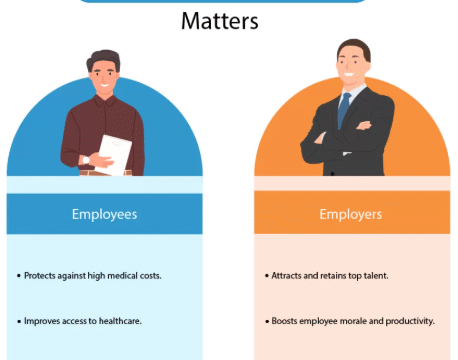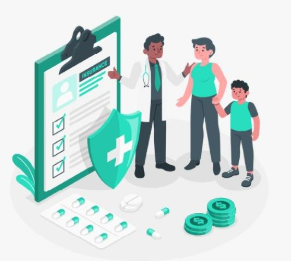Studying abroad in the United States is an exciting journey filled with opportunities for personal growth, cultural exploration, and academic achievement. Yet, the prospect of living in a new country can also feel overwhelming, especially when it comes to building confidence. Whether you are navigating a new campus, making friends from diverse backgrounds, or presenting in English for the first time, cultivating self-assurance is essential. Fortunately, confidence is not an innate trait but a skill that can be developed with consistent effort, patience, and reflection.
One of the first steps in building confidence while studying abroad is embracing a mindset of openness and curiosity. When you arrive in the United States, every experience, from ordering food to attending lectures, can feel unfamiliar. Instead of viewing these challenges as obstacles, approach them as opportunities to learn. This shift in perspective reduces anxiety and encourages a willingness to engage with your surroundings. Small acts of bravery, such as introducing yourself to classmates or asking questions in lectures, gradually reinforce your belief in your ability to adapt and succeed.
Another key strategy is to set achievable goals that match your current level of comfort and gradually push your boundaries. Confidence grows when you prove to yourself that you can accomplish tasks independently. Start with manageable goals, like navigating public transportation or participating in a study group, and celebrate these small victories. As your comfort level increases, you can take on larger challenges, such as giving presentations or joining campus organizations. Each success, no matter how minor it seems, builds a foundation for greater self-assurance.
Developing strong communication skills is also central to gaining confidence while studying abroad. English proficiency may be a concern for many international students, but practicing in real-life contexts can significantly boost self-esteem. Engaging in casual conversations with peers, attending language exchange events, or even recording yourself speaking about familiar topics can enhance fluency and reduce fear of making mistakes. Remember, mistakes are a natural part of learning and do not reflect your abilities. Over time, consistent practice strengthens both language skills and confidence in expressing yourself.
Building connections with others can profoundly impact your self-confidence. Loneliness or cultural isolation is common for international students, but actively seeking friendships and support networks can make a difference. Join clubs, attend campus events, or connect with fellow students from your home country. Surrounding yourself with supportive individuals provides reassurance, encourages social participation, and allows you to practice interpersonal skills in a safe environment. These relationships not only enhance your sense of belonging but also reinforce your belief that you are capable of forming meaningful connections abroad.
Self-care is another important aspect of maintaining confidence. Studying abroad can be physically and emotionally demanding, and neglecting your well-being can amplify stress and self-doubt. Establishing routines that include regular exercise, sufficient sleep, and balanced nutrition helps sustain energy levels and mental clarity. Additionally, taking time for hobbies and leisure activities allows you to recharge and engage with your new environment in a positive way. When you feel physically and emotionally balanced, you are better equipped to face challenges with composure and confidence.
Experiencing cultural differences may initially be intimidating, but approaching them with curiosity rather than judgment can enhance self-assurance. The United States is a diverse country with varied social norms, communication styles, and traditions. By observing and learning about these differences, you gradually become more comfortable navigating unfamiliar situations. Participating in cultural events, volunteering, or exploring local communities provides hands-on experience that fosters adaptability and self-reliance. Confidence grows naturally when you realize that you can successfully engage with new cultures without losing your sense of identity.
Another powerful way to build confidence is to reflect on your achievements regularly. Journaling your experiences, challenges, and successes provides a tangible record of growth. When you encounter difficult moments, revisiting past accomplishments reminds you of your resilience and capability. This practice also allows you to identify patterns, understand your strengths, and pinpoint areas for improvement. Reflection reinforces a sense of progress, which in turn fuels self-belief and motivation to continue stepping outside your comfort zone.
Seeking guidance from mentors or advisors can further enhance confidence. Academic advisors, professors, and campus counselors are valuable resources for navigating both academic and personal challenges. Asking for advice or clarification is not a sign of weakness; rather, it demonstrates initiative and a proactive approach to learning. By leveraging the experience and support of others, you gain reassurance, acquire new strategies for problem-solving, and strengthen your confidence in managing your academic journey independently.
Developing resilience is closely tied to building confidence. Studying abroad inevitably involves setbacks, such as struggling with coursework, facing language barriers, or adjusting to a new social environment. Rather than viewing these obstacles as failures, reframe them as opportunities to grow. Each challenge you overcome reinforces the idea that you are capable of handling uncertainty and adapting to change. Resilience and confidence are mutually reinforcing, as each experience of perseverance deepens your trust in your own abilities.
Finally, maintaining a positive and encouraging inner dialogue is essential. Self-critical thoughts can undermine confidence and amplify anxiety. Instead, consciously practice self-compassion by acknowledging your efforts and progress. Replace negative thoughts with affirmations that reflect your capabilities, such as recognizing moments when you successfully communicated, navigated unfamiliar situations, or achieved academic goals. Over time, positive self-talk becomes a habit that reinforces confidence and shapes a mindset geared toward growth and success.
Building confidence while studying abroad in the USA is a gradual process that combines self-awareness, consistent effort, and an open approach to learning. By embracing new experiences with curiosity, setting achievable goals, practicing communication, fostering social connections, and prioritizing self-care, students cultivate the resilience and self-belief needed to thrive academically and personally. Reflection, mentorship, and positive self-talk further strengthen this foundation, ensuring that each step taken abroad contributes to a lasting sense of confidence. While the journey may present challenges, every experience offers an opportunity to grow, learn, and affirm your ability to succeed in a new environment. With patience, persistence, and a mindset oriented toward growth, studying abroad becomes not only an academic adventure but also a transformative journey of self-discovery and empowerment.






